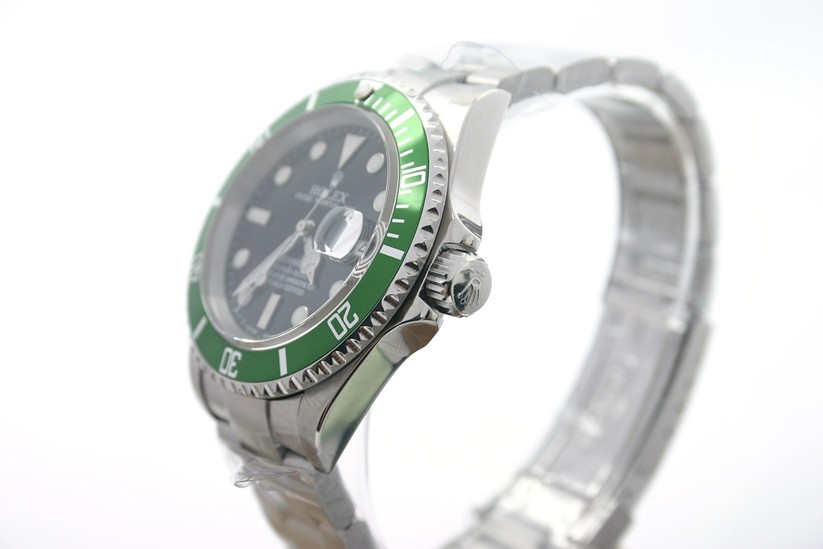Mechanical vs Quartz in Luxury Watches: What You’re Really Paying For

A lot of ink gets spilled on the romance of mechanical timekeeping versus the “soulless battery” cliché. Strip away the mystique and marketing, and the choice comes down to how the watch keeps time, what that means in day-to-day use, and the lifetime costs you’re signing up for. Here’s a clear-eyed explainer of mechanical vs quartz watch tech and how each luxury watch movement delivers value.
Mechanical (manual & automatic)
A mechanical watch is powered by a wound spring. That spring unwinds through a gear train regulated by an escapement and balance wheel.
- Manual wind: you turn the crown to tighten the mainspring.
- Automatic (self-winding): a rotor spins with wrist motion, winding the spring as you wear it.
No electronics, no battery—just a miniature machine running on stored mechanical energy.
Quartz
A quartz watch uses a battery to power a circuit that vibrates a quartz crystal at a precise frequency (typically 32,768 Hz). The circuit counts those vibrations and drives a motor that moves the hands. Most quartz watches are analogue; the difference is inside, not on the dial.
There’s also high accuracy quartz (HAQ): upgraded crystals, temperature compensation, and sometimes GPS or radio sync. These push quartz into near-instrument precision.
Accuracy, durability, and service intervals (total cost of ownership)
Accuracy
- Standard mechanical: commonly anywhere from −20 to +40 seconds per day.
- Chronometer-certified mechanical: about −4 to +6 seconds per day under test conditions.
- Mainstream quartz: roughly ±15 seconds per month.
- HAQ quartz: as good as ±5–10 seconds per year, sometimes better.
If you need set-and-forget precision, quartz wins by orders of magnitude. An automatic watch can be regulated to behave well, but it won’t beat HAQ in raw timekeeping.
Durability & shock
- Mechanical: robust but complex. Repeated hard shocks (racquet sports, mountain biking) can throw off regulation or damage parts. Modern shock protection helps, yet mechanics remain more delicate.
- Quartz: fewer moving parts under load. Better at shrugging off day-to-day knocks. In sports scenarios, quartz is the safer bet.
Water & magnetism
- Water resistance depends on case design, not movement. That said, mechanical crowns get used more (for winding/date), increasing wear on seals if you’re careless.
- Magnetism can affect both, but mechanical balances are especially vulnerable unless alloys or silicon components are used. Quartz generally recovers once the magnetic field is gone.
Servicing & total cost
- Mechanical service intervals: every 5–10 years is typical. Full services involve disassembly, cleaning, replacement of worn parts, lubrication, and pressure testing. Watch servicing costs vary widely, but expect hundreds to four figures for high-end pieces, especially chronographs or complicated calibres.
- Quartz service: a battery change every 2–5 years (pennies to tens), plus gasket checks. Full overhauls are rarer but can still be required, especially for older or complicated quartz.
Total cost of ownership (TCO): If you plan to keep and wear the watch for decades, mechanical ownership usually costs more over time. Quartz is cheaper and more predictable—unless you pursue rare HAQ models or discontinued modules, where sourcing parts down the line can add complexity.
The craft story: finishing, heritage, and why it matters to collectors
What drives enthusiasts to mechanical? Craft and continuity. A mechanical movement is a kinetic sculpture: bridges bevelled by hand, perlage on plates, anglage that catches the light, a rotor engraved like jewellery. None of this improves accuracy; it’s about human skill and aesthetic pleasure.
Heritage also matters. Mechanical watchmaking keeps 19th- and early-20th-century techniques alive, and many collectors value that lineage. Even when industrialised, high-end brands invest in finishing because it speaks to connoisseurship: you’re paying for labour hours, not just materials.
Quartz has its own stories, often under-told: thermocompensation engineering, ultra-low-drain circuits, and micro-motors that quietly outperform mechanics for timekeeping. These achievements are less visible under a solid caseback, but they are feats of precision engineering nonetheless.
Use-case reality: daily wear, office, sport, special occasions
- Daily wear (low maintenance): Quartz wins. It’s grab-and-go, accurate, and not fussy about your routine. If you rotate watches, a mechanical can stop between wears; quartz won’t.
- Office / business casual: Either works. Mechanical offers romance and a talking point. Quartz offers perfect timekeeping and a slimmer profile in many cases.
- Sport / travel: Quartz, especially HAQ or solar, is hard to beat—shock resistance, accuracy, often better timezone features. Mechanical dive and pilot watches can do the job but bring more servicing risk.
- Special occasions: Mechanical shines. The sweep of the seconds hand, decorated movements behind a sapphire back, and the intangible pleasure of wearing a small machine resonate in dress settings.
(If you’ve discovered watches through blogs, dealers, or even luxury watch competitions online, assume the same principle: buy for the use-case first, not the marketing story.)
Value retention: myths vs truth
The myths
- “Mechanical always appreciates.”
- “Quartz is disposable.”
- “Chronometer certification guarantees resale value.”
The reality
- Brand, model, and scarcity dominate resale outcomes—far more than movement type. Iconic references from top maisons may hold or grow regardless of quartz/mechanical, while obscure models from lesser-known brands can lag.
- Mechanical does better on average in enthusiast circles because collecting culture prizes craftsmanship and serviceability. But servicing costs can offset gains; buyers discount for overdue maintenance.
- Quartz isn’t automatically a write-off. HAQ pieces, historically significant quartz models, and well-known integrated-bracelet designs can be collectible. Still, vintage quartz risk includes obsolete modules and parts scarcity.
Movement choice is a factor, not a guarantee. Buy what you’ll wear and enjoy. If value retention is critical, research specific references, production numbers, and recent transaction data—movement alone won’t save a poor bet.
Decision framework: which movement suits which buyer
Use this quick filter to map needs to movements.
- I want accuracy with zero fuss.
Choose quartz (ideally HAQ or solar). You’ll set it once, change a battery very occasionally, and get on with life. - I love the idea of a living machine and don’t mind periodic servicing.
Choose mechanical automatic. Accept a few seconds a day drift; enjoy the craft. If you like ritual, consider manual wind. - I rotate several watches and hate resetting them.
Quartz or a mechanical with quick-set features and a simple date. A winder can help, but it’s not mandatory. - I’m hard on gear—sports, travel, knocks.
Quartz. Fewer delicate parts, better shock tolerance, less magnetic angst. - I want heirloom vibes and open casebacks.
Mechanical. Prioritise visible finishing (hand-applied where possible) and proven service networks. - I care about long-term costs.
Quartz is cheaper over decades. If mechanical, budget for service from day one and prefer simpler movements (three-handers over chronographs or perpetuals). - I’m buying with resale in mind.
Research specific references and brand demand cycles. Movement helps, but brand, model, and condition matter more than the spec sheet.
Bottom line
- Mechanical = artful machine with higher TCO, human craft, and a stronger emotional pull. Accuracy is good enough for life, not lab-grade.
- Quartz = practical precision with low TCO, excellent durability, and genuine engineering merit, especially in HAQ.
You’re not just paying for what tells the time, you’re paying for how it tells the time, and whether that “how” aligns with your daily reality. Choose the luxury watch movement that matches your habits, not the loudest myth.



